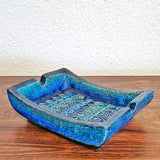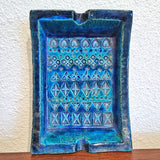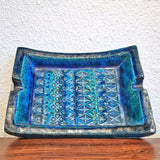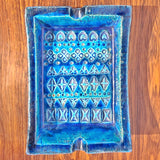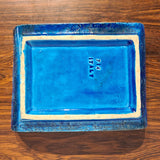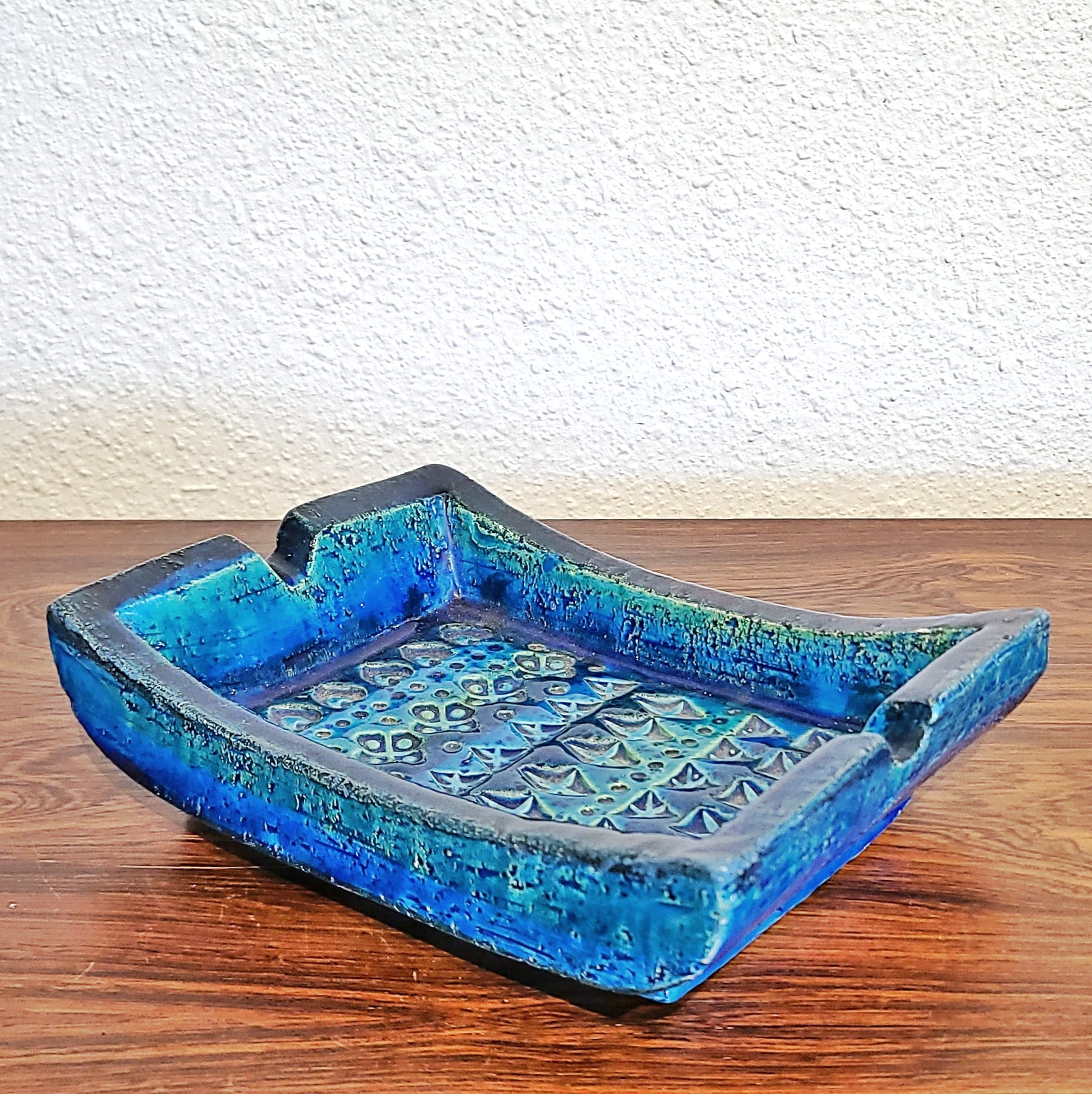
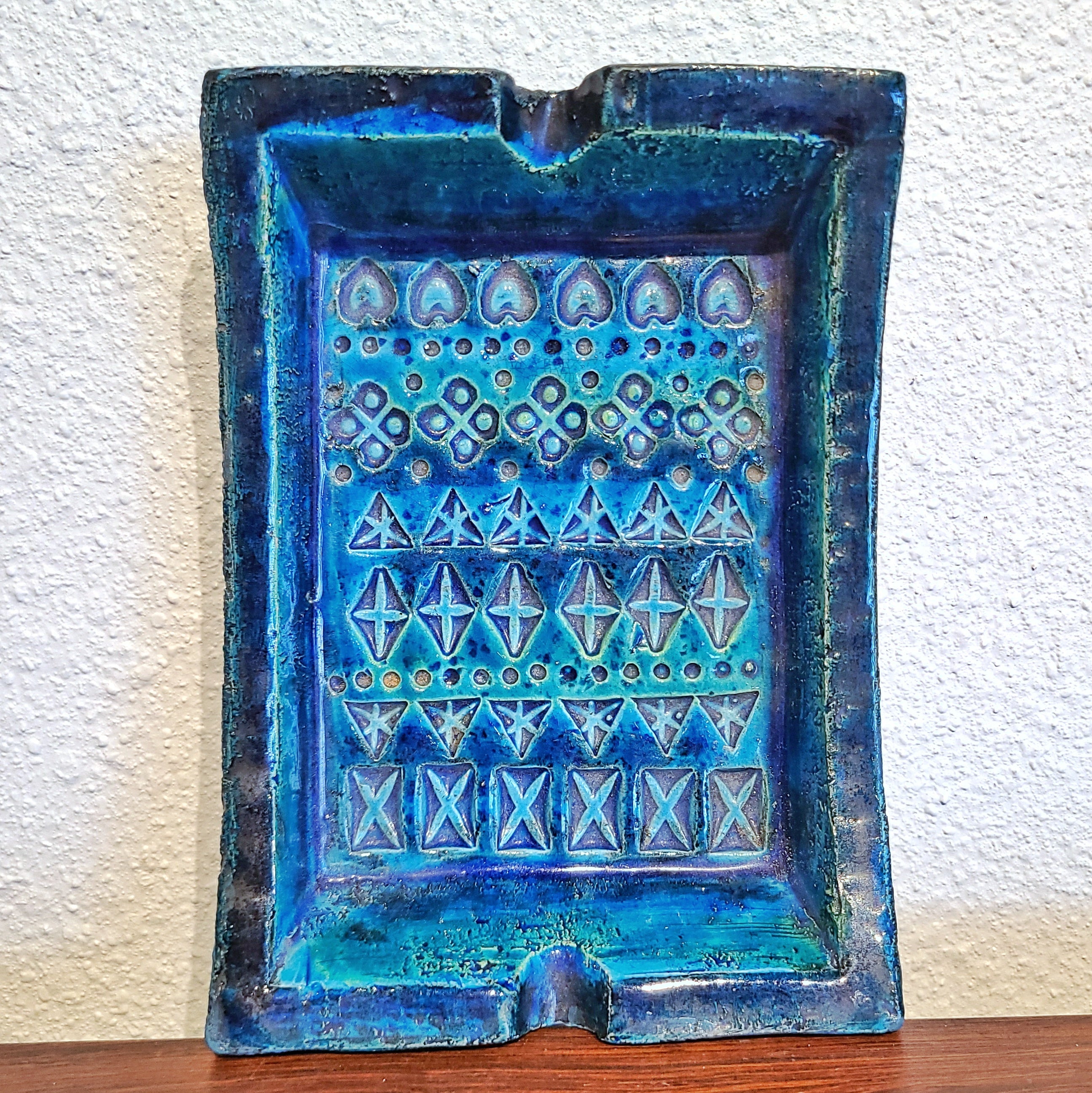
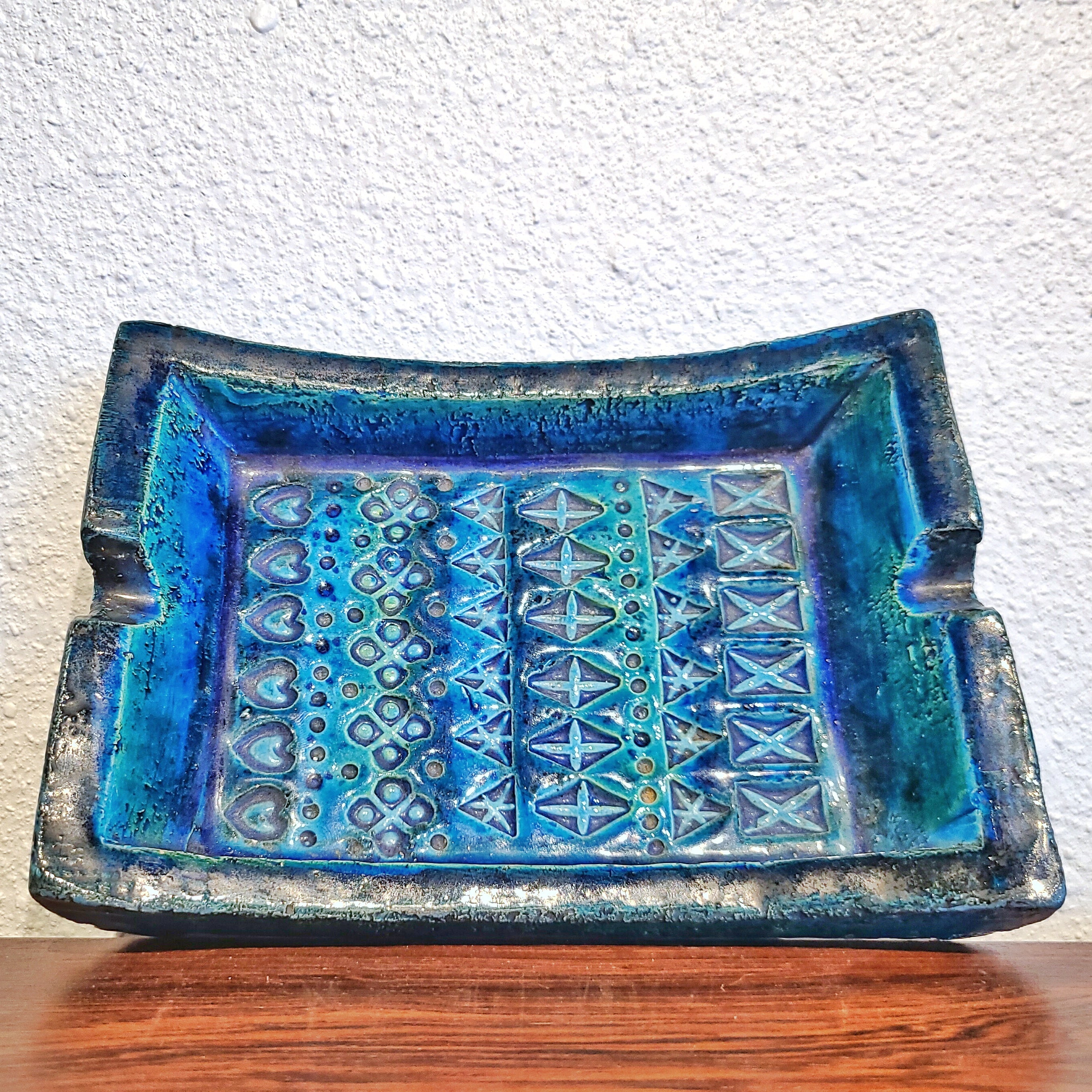
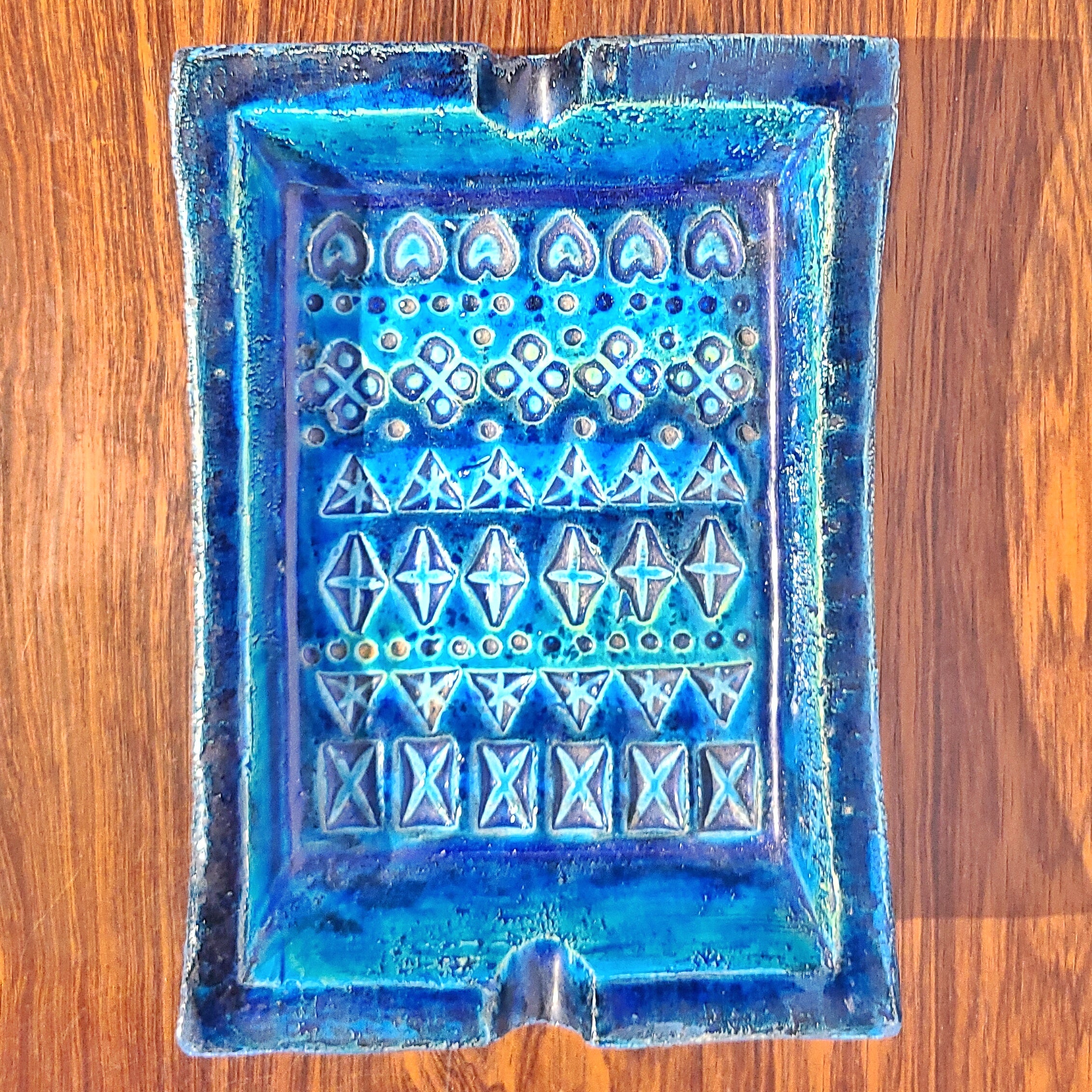
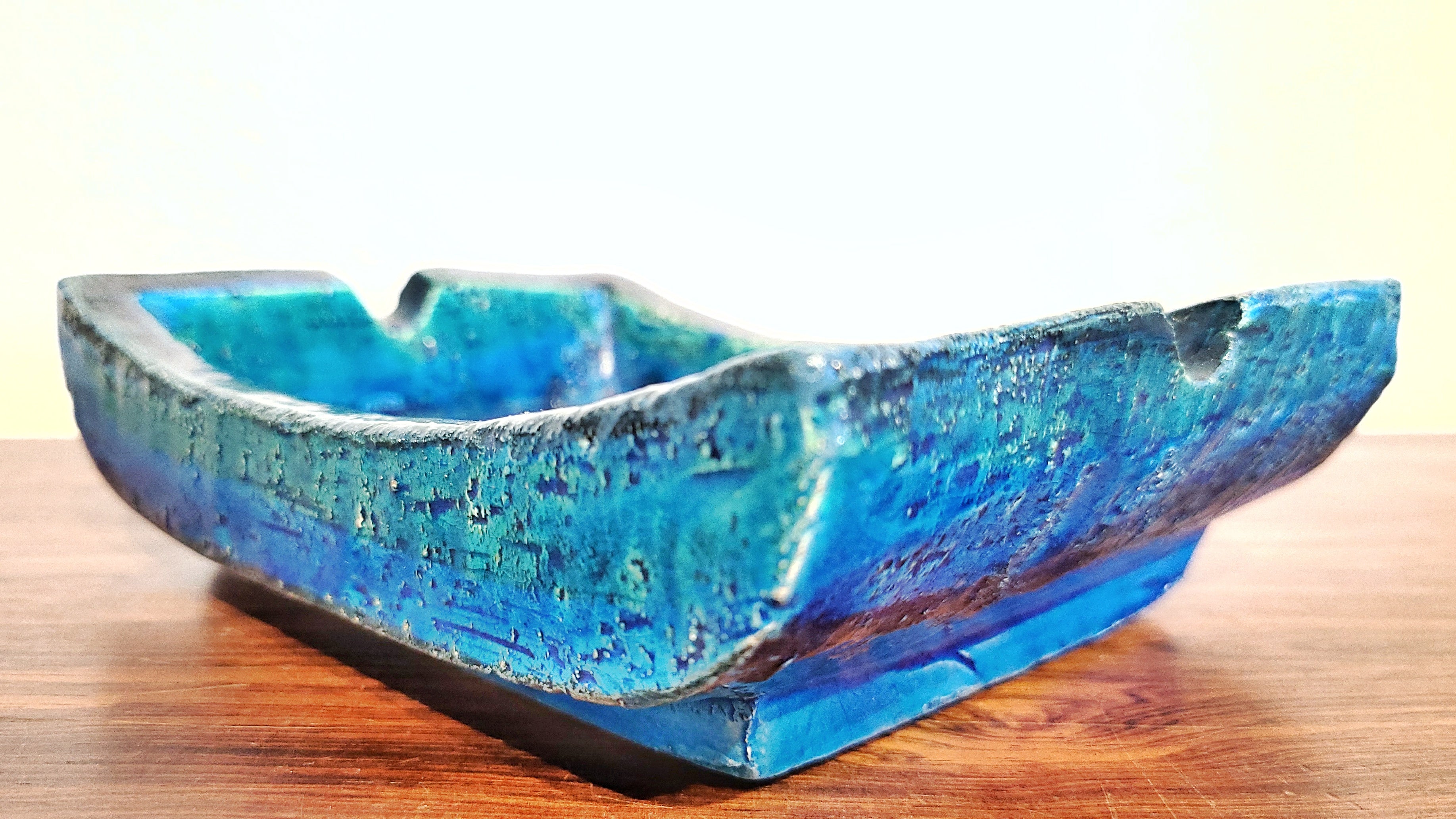
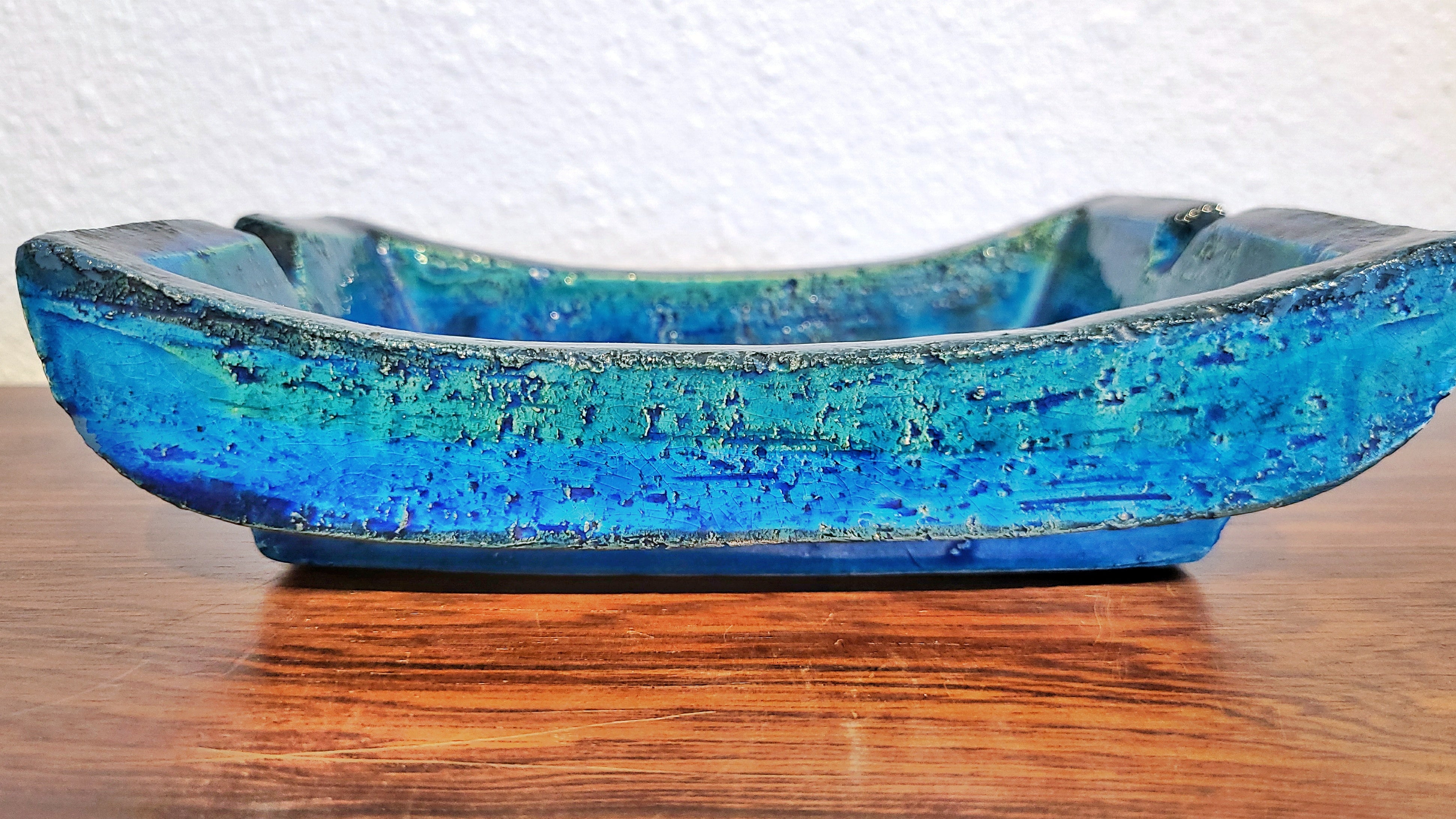
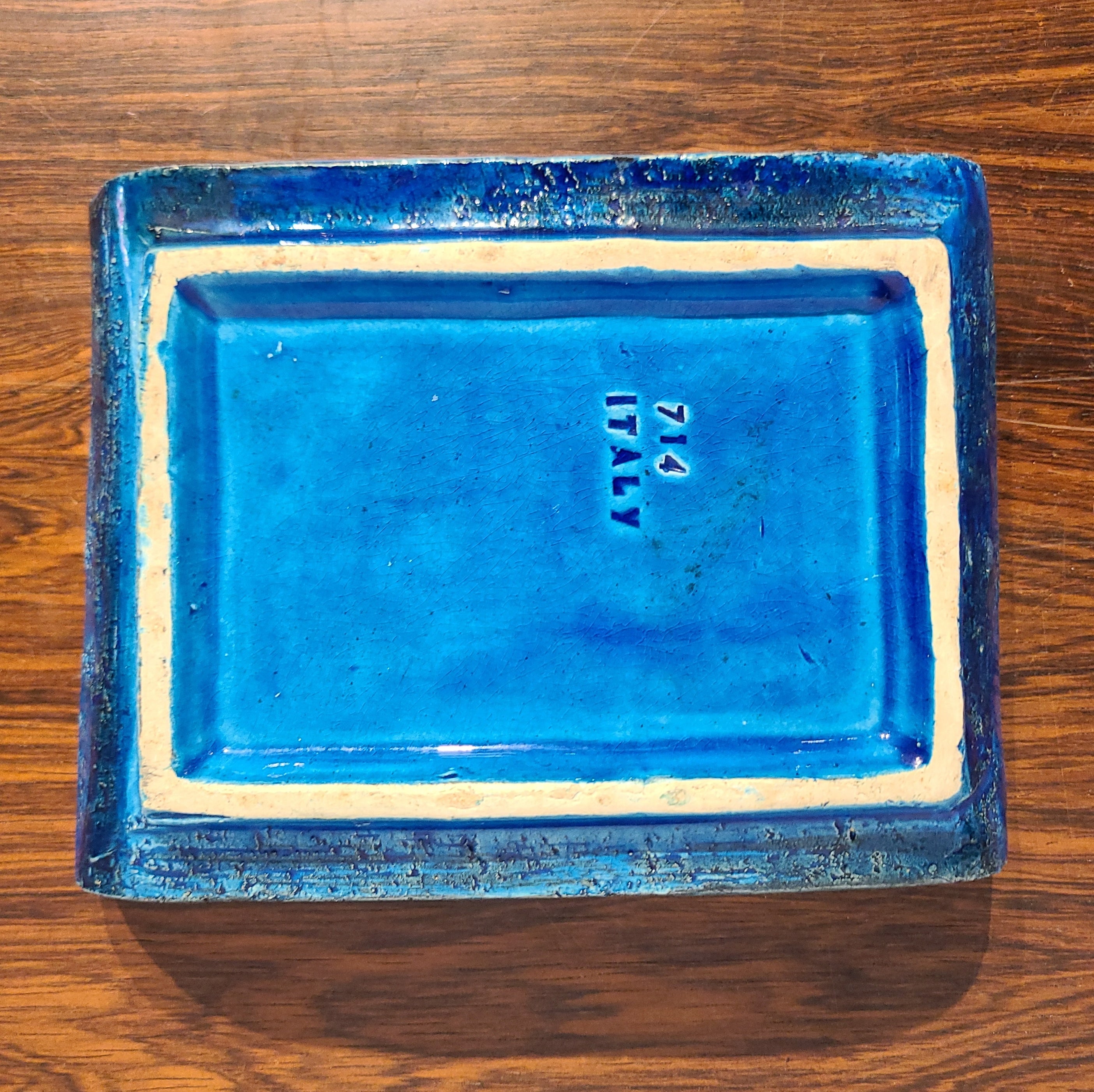
EARLY “RIMINI BLU” ASHTRAY BY ALDO LONDI FOR BITOSSI
CONTACT US HERE ABOUT THIS ITEM.
An early example of Aldo Londi's Rimini Blu décor applied to a decorative ashtray or vide-poche. Created for BITOSSI CERAMICHE Ceramiche and distributed in the United States by Raymor.
ALDO LONDI (1911-2003) was one of Italy's most celebrated ceramicists. He spent most of a long and successful career creating exceptional works of great art and craft for the Italian ceramics manufactory BITOSSI CERAMICHE.
Londi’s hometown of Montelupo Fiorentino, just outside of Florence, had been an important center for pottery production since the Renaissance. Londi started working for Fratelli Fanciullacci, the region’s premier ceramics workshop, in 1922 at the age of eleven. After World War II, upon his return to Italy from South Africa—where he had been a prisoner of war—Londi became creative director of BITOSSI CERAMICHE. He would hold this position for more than 50 years and would design over 1,000 objects, ranging from jugs and vases to clocks and animal figurines.
Londi's high-level technical expertise and his vast experience in artisanal methods allowed him to create distinctively expressive and often whimsical forms, patterns, and finishes. His best-known collection was the 1950s-era Rimini Blu (1955-1965), a now iconic Mid-Century Modern series encompassing over 150 designs, all glazed in vibrant Persian blue and embossed with abstract motifs and shapes. Londi created the series' first piece, his seminal Ball Vase, in 1955. The collection holds particular historical importance because it helped to bring handcrafted works into the modernist design conversation in Italy. Although blue was not the only color Londi utilized, it became closely associated with his oeuvre.
Aldo Londi began a fruitful collaboration in 1958 with legendary architect-designer Ettore Sottsass (1917-2007), who regarded Londi as an important mentor. During his long tenure at BITOSSI, Londi would collaborate with a host of other notables. (See below.) Most of Londi’s collections, including Rimini Blu, are still in production today and are widely collected by ceramics enthusiasts. Many of his original works can be seen at the MAIB–Artistic Industrial Bitossi Museum in Montelupo, which is dedicated to the history of the firm.
BITOSSI CERAMICHE was established in 1921 as Manifattura Ceramica Cav. Guido Bitossi & Figli by Guido Bitossi in Montelupo Fiorentino in Tuscany—a region with an ancient tradition of ceramics a few kilometers from Florence. The Bitossi family, documented in the area as early as 1536, had for centuries worked there as sculptors, painters, but especially as potters. In the twentieth century, under Guido's leadership, they would introduce an extraordinary stylistic and formal renewal of their craft.
In the late 1940s, master ceramist Aldo Londi (1911-2003) was named BITOSSI CERAMICHE's creative director. He held the position for more than 50 years and would design over 1,000 objects for the company. Himself a Montelupo native, Londi brought to BITOSSI a deep expertise in the traditional production of ceramics. He nevertheless keenly appreciated the streamlined forms of the mid-century moment. Londi is best known for his Rimini Blu collection, an iconic series comprised of over 150 designs—bowls, vases, jugs, and animal figurines—all glazed in a vibrant azure hue and embossed with abstract motifs and shapes. Londi’s last solo collection, ARKitectura, stands somewhat apart from his earlier work and features elegantly minimalistic animal figures glazed in monochromatic black, white, or platinum. Both collections are still in production today.
During Londi's tenure, BITOSSI collaborated successfully with a host of famous designers, including the legendary architect-designer Ettore Sottsass (1917-2007). An avatar of 1960s counter-culture, Sottsass thought design should be provocative and sensual, and his avant-garde style blended well with BITOSSI’s mid-century aesthetic. Besides Sottsass, BITOSSI partnered with designers Piero Fornasetti, Karim Rashid, Arik Levy, Fabio Novembre, Benjamin Hubert, Matteo Thun, Monica Förster, and Cédric Ragot.
Today BITOSSI CERAMICHE is justly considered an institution. The Bitossi family and its foundation have amassed an archive of over 7,000 historical documents and materials in relation to the production of ceramics. The assemblage is housed in a museum in Montelupo. In 2014, BITOSSI became an official member of the Registry of Italian Historical Companies, appointed by the Italian National Union of Chambers of Commerce.
DETAILS
Maker - Bitossi Ceramiche
Production Period - 1950s
Designer - Aldo Londi
Design Period - 1950s
Origin - Italy
Styles/Movements - Mid-Century Modern; Abstract
Materials - Ceramic
Colors - Blue
Condition - Excellent vintage condition. There are no chips, cracks, or repairs of any kind.
Dimensions - 7.5ʺ W × 5.5ʺ D × 2ʺ H

